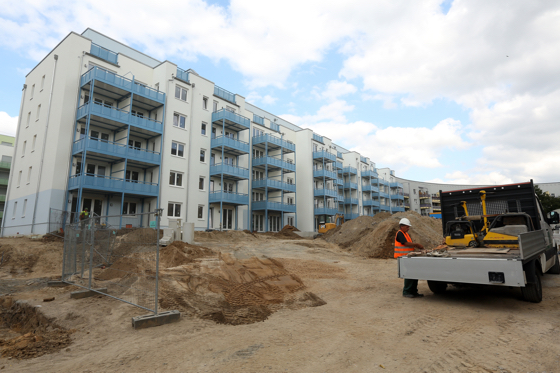While the titans battle out the valuation equation at 60,000 feet, real-world buyers and sellers are developing their own pandemic-proof strategies for determining the value of hotel assets.
Contributed by Mary Scoviak
Here are some of their strategies:
Chad Crandell, managing director/CEO, CHMWarnick, Beverly, Massachusetts
“Absent positive cash flow, as is the case for most hotels right now, valuations are generally based on a discount to replacement cost or, more likely, a discount to 2019, which brokers are suggesting would be anywhere from 20% to 40% based on the type of asset and its location.
“Regardless of the metric used, I think valuations will be heavily scrutinized and we will begin to see more of a forensic analysis in support of assumptions that inform what the recovery trajectory might look like for a given property, including a detailed review of business segments (pre- and post-COVID) and quite possibly local government politics, at least in the short term. In all instances, underwriting is going to have to include a basic assumption that includes the timing of which a COVID vaccine will be available sometime in 2021, otherwise there will be no recovery and values will not improve. You have to assume that sometime in 2021 vaccines will happen (and that people will actually get vaccinated) in order for business travel to resume, especially group.
“The bid-ask gap is still wide, with many owners actively negotiating with lenders for extended forbearance periods, hanging on for the next round of federal aid and not willing to sell at steep discounts just yet. While those looking to acquire, likely cash buyers, are seeking ‘pennies-on-the-dollar’ deals that simply don’t exist, at least not yet. The gap is going to be hard to close until there is a vaccine.”

William Heinecke, chairman & founder, Minor International, Bangkok
“Currently there is a large ‘bid-ask’ gap, as evidenced by limited pure equity-exposure investment. Most PIPE deals are done in the form of preferred equity and convertible loans. On the right valuation approach, it is the combination of replacement cost analysis and discounted cash flow analysis. For the latter, while currently most investment committees are conservative on the revenue recovery calendar, as COVID-19 concerns ease investors will gradually shorten the recovery calendar and that will continue to close the ‘bid-ask’ gap.”
Anders Nissen, CEO, Pandox AB, Stockholm
“Pandox is a long-term owner and values its hotel properties according to the same method and model as always. We use a 10-year discounted cash flow model for each hotel property with a yield furnished by external property appraisers. Short term there is shortfall in cash flow due to COVID-19, which is reflected in slightly lower values. But as we move beyond the current situation, cash flows and values are expected to recover.”
John Pritzker, founding partner and director, Geolo Capital, San Francisco
“Price per key and the discount to replacement cost are the key metrics. If you believe we human beings will gather again at some point in the future once we believe it is safe to travel, we believe that strong locations in cities that offer well-maintained facilities will return to favor faster than secondary markets.
“2019 financial performance is also another useful measure. The climb back will be slow at first, but we believe demand will eventually return. No one knows when a successful vaccine will be available, but in the interim, we would expect to see 20% to 40% discounts to pre-COVID values. In most markets, this means buyers will look for a 10%-plus cap rate on 2019 NOI.
“Potential sellers are still looking for a 10% discount on 2019 valuations. The bid-ask gap will only start to close when sellers capitulate, which is by and large is a function of the timing of the rollout of the vaccine.”
Anthony Sherman, founder and principal, Terrapin Investments & Hotel Management, Aspen, Colorado
“Research metrics from CBRE and others say values won’t get back to pre-COVID levels for 20-24 months. Values are running 30% less than last December. There are no willing sellers at these prices, including me.”
Mandav Thadani, founder and chairman, Hotelivate, New Delhi, India
“Valuation struggles intensify during black swan events like COVID-19. Given the impending weak sectorial outlook, buyers in current times would want to factor in higher perceived risk, higher cost of capital and therefore seek higher capitalization rates.
“During downturns, it becomes exceedingly difficult for buyers to assess fair value and premium for the target. Cognitive biases are often seen to cloud vision and judgement. A reasonable method would be to use 2017-19 average earnings as the base but apply a higher than usual (around 100-200 basis points) term cap rate and finally subtract the potential operating losses for 2020 and 2021. For young hotels with inadequate operating metrics, a discount to replacement cost is the currently being used in transactions.”
Homi Vazifdar, CEO, Canyon Equity, Larkspur, California
“Companies and single assets that are looking for an exit but have staying power and no gun to their head will hit the ‘pause’ button. Three distinct markers will be used for valuations: (a) Trailing 12 months 2019 NOI cap rate and multiples; (b) Forward 12 months 2021 cap rate and NOI multiples; and (c) When the properties opened after COVID closures, the velocity of upward trajectory in performance from opening till year-end 2020.”
